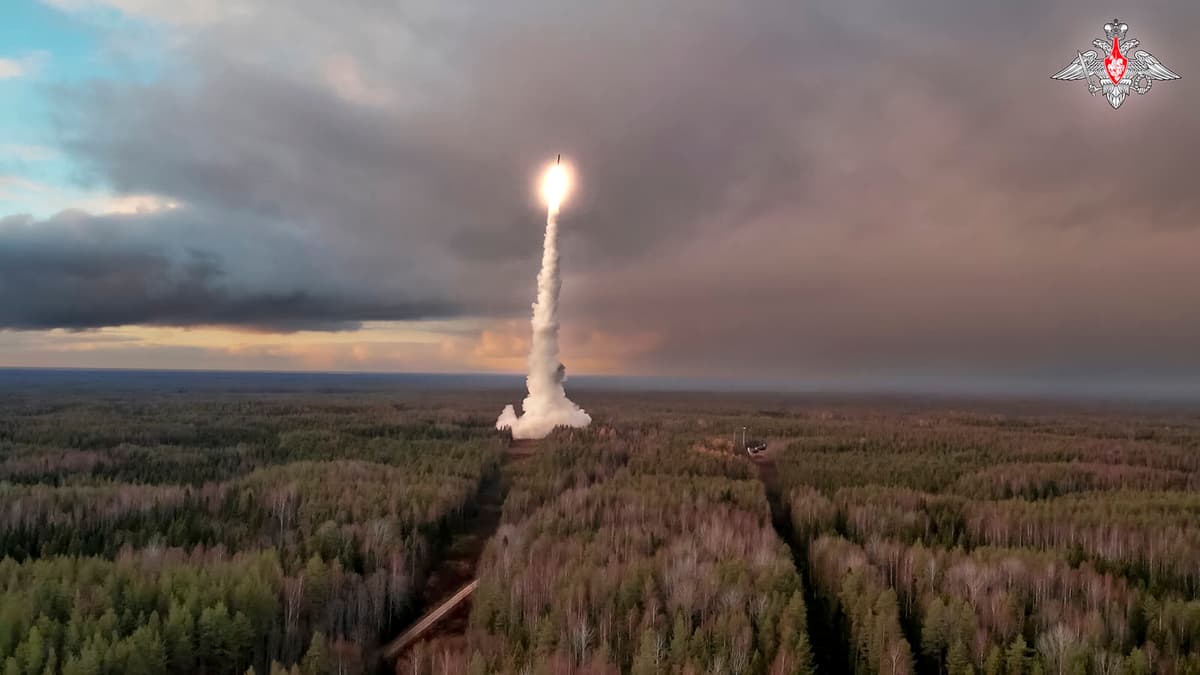Russia does not need to use intercontinental ballistic missiles (ICBM) to deliver a nuclear attack on Ukraine. Several of the weapon systems that have already been used in the war can be equipped with nuclear weapons.
But now, an intercontinental missile – without a nuclear weapon – has been used against Ukraine for the first time.
This is an attempt by the Russian leadership to give the impression that they are escalating the war against Ukraine by firing a type of missile that they have not used before, says Markus Göransson, lecturer in military science at the Defense University.
"Content-poor signal"
Russia's move, however, will not have any practical military effect, he says, except that it will raise concerns in the West as it may give the impression that the risk of nuclear war has increased.
Actually, it's just like much else from the Russian leadership, a fairly content-poor signal that they're trying to send to the West.
The fact that Russia has a large number of these intercontinental missiles is no news, he emphasizes.
If they had unveiled a new weapon system that we were not familiar with or if they had attacked another country, then it would have raised concerns with me as well.
Limited response options
The attack, which was directed against the city of Dnipro, is interpreted as a response to Ukraine's attacks on targets in Russia with weapons from the USA and the UK.
This is a development in the war, but I think it's interesting that they don't have much to respond with. They have limited response options to this development.
The fact that Ukraine can send these fairly long-range missiles into Russian territory is, in practical terms, a much greater development of the war militarily.






